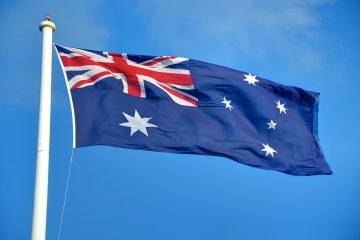Fast fashion is a source of global crisis. As the second most wasteful industry in the world, it loses only to oil. As of 2020, fast fashion was responsible for 10% of worldwide CO2 emissions with textile production alone adding up to 1.5 trillion litres of water per year. The environmental implications of this industry are famously disastrous, but less known perhaps, are its incriminating human rights violations.
The fast-fashion business model has been present since the early 1990s. The premise is simple: making high-end fashion accessible to a wide market at affordable prices. However, given that producing large quantities for low prices tends to be problematic with labour laws in developed states, corporations based in the West out-source their labour to developing countries where regulations surrounding wages and working conditions are often laxer.
Oftentimes, “fashion brands assure their customers that the workers who made their clothing are paid at least the minimum legal wage.” What is not advertised, however, is how the minimum wage in the host countries such as China, Bangladesh, and India is between half to a fifth of the living wage – the amount needed for basic necessities. This highlights a trend of fast fashion companies claiming to support the rights of their employees on a technicality when in reality, these workers are deeply exploited. These companies then avoid blame as the inhumane working conditions coincide with the lacking labour rights in the manufacturing country. Essentially, the reality of how these workers have no rights afforded to them is both obscured and exploited by the industry, and what’s worse is there is minimal accountability to prevent it.
The fast-fashion labour force works anywhere from 14 – 16 hours a day, 7 days a week, possibly until 3 a.m. Overtime is expected and often cannot be refused under threat of termination, and, in some cases, it may not even be paid. Conditions have been bad enough to kill. In 2013, 1,134 garment workers died in a factory collapse at Rana Plaza in Dhaka, a factory that supplied clothing for major fashion outlets including Benetton, Bonmarché, The Children’s Place, Joe Fresh, Mango, Matalan, and Primark. Other instances include the 114 people who were killed in a fire at Bangladeshi firm Tazreen Fashions that same year, or the 50 workers in 2015 who died due to blasted sand inhalation in Turkey, leaving another 5000 people sick.
The violation of workers’ rights takes place not only in these factories, but earlier in the process of producing fast fashion clothing as well. Forced and child labourers are commonly employed in cotton fields that produce the raw materials for clothes. They receive little to no pay, working up to 12 hours in extreme temperatures. In Gujarat, India, for example, a child working on a cotton farm will receive less than 0.73 USD per day.
In legal terms, there is little accountability for brands that source their clothing from unethical labour practices. Consumers can, however, have the option to be more mindful of where they buy their clothing from. For example, brands that are conscious of where their clothing is sourced typically have accreditation from an organization that confirms the conditions of the sourced labour. These include organizations like the Fair Wear Foundation, the Fairtrade Label Organisation, the Global Organic Textile Standard, and the Ethical Trading Initiative. However, for more fast-fashion brands to voluntarily seek such accreditation and switch to more ethical practices, there would need to be extensive pressure from consumers making an effort to ensure that where they buy their products is fulfilling the basic labour rights of their employees. Unfortunately, that rules out most labels that advertise fashion for cheap prices while offering new items weekly, if not daily. To start with, take a look at this list of 10 major shopping brands to boycott, due to their unethically sourced clothing. It is also true, however, that these brands, as well as other fast fashion labels, tend to be both the most affordable and accessible options for a wide audience. If boycotting is not possible, other shopping options like thrifting or transparent locally sourced brands may be worth considering.
Ideally, there should be legal repercussions on companies that neglect to check up on the practices of where they outsource their labour to. But even if they cannot be legislatively held accountable, this is a time where consumers are uniquely suited to incite change. If we refuse to help a brand profit off of human rights violations, these businesses will be forced to change their model into one less reliant on the exploitation of workers. To shop ethically is to say through action that these conditions are wrong and that the situation needs to change. With that in mind, the least we can do, the next time we shop, is to take a moment and think about whether someone suffered for us to get that deal.
Feature Image taken from The Independent




